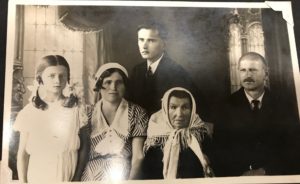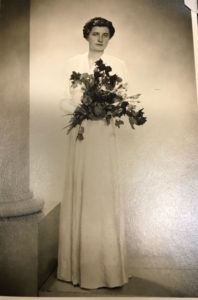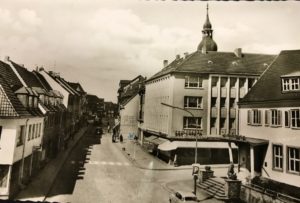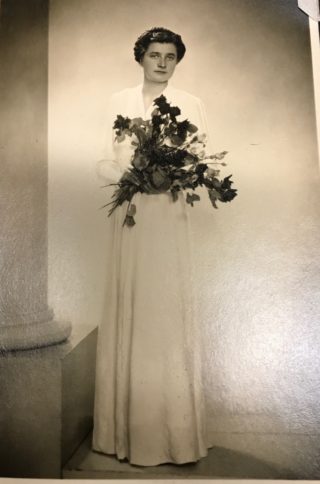My grandmother was a wonderful woman with a dramatic story. She was raised in Riga, Latvia, one of the three tiny Baltic States tucked in between Russia and the Baltic Sea. Historically, both the Germans and the Russians had strong ties to Latvia, and reading the history of Latvia is basically reading about wars between Germany and Russia. The Latvian people were stuck in the middle, and most of them – my great-grandparents included – spent almost their entire lives in a war zone.

(My grandmother, Austra, on the left, next to her mother, her grandmother, and her father, with her brother in the back.)
After the vicious battles of World War I ended, Latvia claimed independence and had two golden decades of freedom before World War II came along. Then Hitler and Stalin signed the Molotov-Ribbentrop Act, which basically gave the Baltic States to Soviet Russia. In June of 1940, Stalin ordered his troops to occupy Latvia, and my sixteen-year-old grandmother’s city became an occupied territory. Years of war followed, with the Nazis pushing out the Soviets until 1944, when the Nazis retreated, leaving the Latvian people once again under Soviet rule, which didn’t end until 1991, when the Soviet Union collapsed.

(Austra on her confirmation day during the Nazi occupation.)
My grandmother, Austra Marija, survived those tumultuous years, but at the end, she had lost her father, her home, and even her country. I grew up hearing the stories of how she escaped on a troop ship during the battle of Riga, how she lived through bombing raids in Germany, how she ended up in a refugee camp before emigrating to the United States of America in the late 1940’s.

(The tiny blue spot marks the apothecary in Germany where Austra worked at the end of the war.)
In 2001, I was blessed to be able to visit Latvia with my grandmother and my parents. I walked with her along the streets she trod as child, saw the school where she attended under both Soviet and Nazi rule, saw her sorrow over what had happened to her country. It was an emotional journey for her, and the trip made a significant impact on my own life as well. I did my best to capture those emotions as I wrote.
I had always wanted someone else to write a book about her life, but no one did, so I decided it was up to me! Only the Stars Remain is not exactly the same as my grandmother’s story. For privacy reasons and for dramatic reasons I took artistic license with my manuscript, but much of the historical detail is exactly what she told me.
I hope that one day each of you will have the opportunity to read Only the Stars Remain and be touched by Austra Marija’s inspirational life story.

Well done, Caryn. This is an excellent introduction and I’ll look forward to reading your book.
Thank you, Julie!